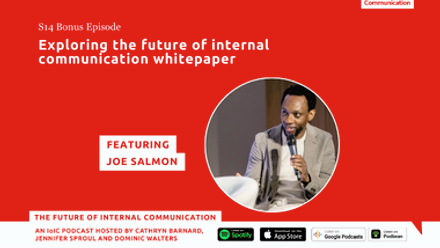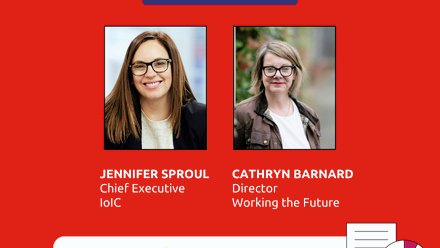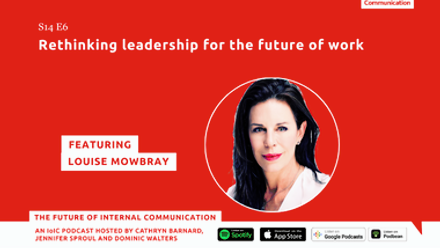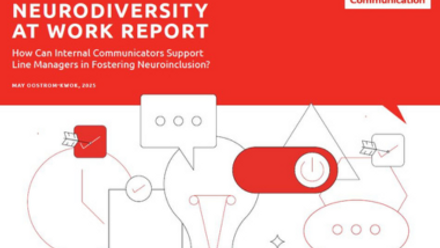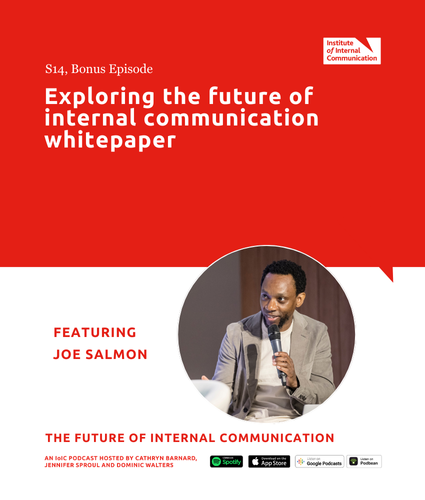While Gen Z shares many common traits with their millennial counterparts, there are some significant differences too. If you want to hire the top Gen Z talent, here are some things about them you'll want to know.
1. Hyper-connected
Gen Z is the first generation to be raised in an era where they can't remember a time without being connected. They are true digital natives and their behaviors, tendencies, preferences, and expectations are following them into the workplace. This means they'll anticipate an "always on" experience at work, wanting answers quickly. When they don't have instant access to communication, they tend to get anxious which could negatively impact their productivity levels. Management should take this into consideration as they develop processes and policies.
2. Competitive
It's not that Gen Z'ers aren't wanting to be collaborative, they are. It's just they have a competitive streak millennials don't generally possess. Gen Z isn't happy with a participation award, they want to be recognized individually for their work and get ahead because of it. As a manager, it's a good idea to keep in mind that while group acknowledgments are nice, to not neglect recognizing individual achievements as well. This will go a long way in creating healthy morale.
3. Human Touch
Interestingly enough, while Gen Z is heavily attached to their technology for communications, they also want the human element present in their jobs. According to recent surveys, a whopping 72 percent of Gen Z'ers want face-to-face communication at work, along with supportive leadership, and positive relationships. This slightly differs from millennials, so it's a good idea to keep this in mind when managing Gen Z.
4. Training/Learning
Gen Z takes a different approach to problem-solving and knowledge-sharing. Many have opted to skip college because of the enormous burden student loans can impose. But that doesn't mean they aren't educated. Because they've always had Google at their fingertips, they tend to be go-getters and take a self-directed approach to glean information. To keep them engaged, companies will want to find innovative ways to train or share job-related knowledge. Boring meetings and mandatory conferences or seminars probably won't cut it.
5. Career Growth and Development
Millennials are unique in that they are very team-oriented and don't necessarily try to rapidly climb the proverbial corporate ladder in the traditional sense. Gen Z, on the other hand, places a high value on career growth and development. They are very motivated and won't be shy in job-hopping to another employer where they feel they'll get a promotion. To position themselves as appealing employers to Gen Z, companies will need to invest in professional growth opportunities. Remember, Gen Z grew up watching their parents struggle during the Great Recession, they look to gain an education on the cheap and actively seek non-traditional (and less expensive!) ways to learn.
6. Entrepreneurial Nature
Gen Z employees tend to be highly independent and aren't afraid to tackle a challenging project on their own. In fact, they embrace this type of work because it gives them an opportunity to showcase their unique skillsets. They aren't afraid to go it alone, thanks in part to apps and services that let them estimate self-employment taxes and keep track of things like mileage, receipts and other records on their phones.
Their entrepreneurial nature also suggests they want more autonomy and will be unhappy in jobs that are micro-managed. Managers of Gen Z will want to consider their entrepreneurial spirit as they delegate assignments. Even mundane jobs should offer some challenging aspects of work, else risking the Gen Z employee moving on to a competitor that can offer it.
7. Social Media
As indicated, Gen Z can't function well without being connected. Social media plays a large role in their needs. They feel it's appropriate to be connected to everyone, even company management. Companies that take a personalized and holistic approach to Gen Z employees, much like they would with today's customers, will likely find more success in attracting and retaining Gen Z talent. The expectations here are pretty similar in nature.
8. Recruitment
Recruiting is another area where Gen Z will change the workplace. Customary "want ads" definitely won't cut it. Gen Z will want companies to be able to demonstrate they can offer the benefits and perks sought out by this population. To successfully hire qualified candidates, recruiters and hiring managers will want to use a "marketing" approach to better appeal to Gen Z candidates. With the job market booming, if they don't see what they like at one company, they'll simply look to another that offers the benefits they want. Show them what's unique, fun, and challenging about job opportunities. If you successfully sell Gen Z on company culture, you'll gain a good employee.
9. Professional Etiquette
While Gen Z is tech-savvy, ambitious, and independent, an area of weakness tends to be the social aspects of professionalism where some soft skills, such as communication, tie in. Areas employers will find themselves needing to focus on when it comes to Gen Z are the types of skills earlier generations take for granted. While Gen Z desires personal contact, they aren't necessarily skilled at these encounters. Employers may need to evaluate their Gen Z'ers skills when it comes to everyday tasks such as answering phones, greeting clients, and writing emails.
10. Hiring Competition
Because Gen Z is heavily focused on things relating to work-life balance, they'll be performing their due diligence when it comes to deciding which companies to apply to. They actively seek out information on LinkedIn, Glassdoor, and other reviews to see what past and present employees are saying about companies. Businesses will need to prepare to be transparent about benefits, perks, and other pertinent employment details. If not, Gen Z won't be bashful about walking out the door.
According to recent numbers, Gen Z will account for 32% of the global population in 2019. This means this generation is larger than Gen X and two-thirds the size of the Baby Boomers. As they enter the workforce, forward-thinking organizations that are willing to adapt to accommodate Gen Z will find this generation more open to signing on the dotted line when it comes to employment options.
IoIC Awards 2026
Find out everything you need to know with our entry guidance including top tips to help your submission stand out. Early Bird Entries must be submitted by 11.59pm on Friday 13 February and Standard Entries submitted by 11.59pm on Friday 17 April.Latest Podcast: Nurturing inclusive work cultures
In this bonus episode of season 14, Jen, Dom and Cat are interviewed by IoIC board member and fellow Joe Salmon. Together they discuss the factors driving change for internal communication and ways in which internal communicators can prepare for an altogether exciting future.

